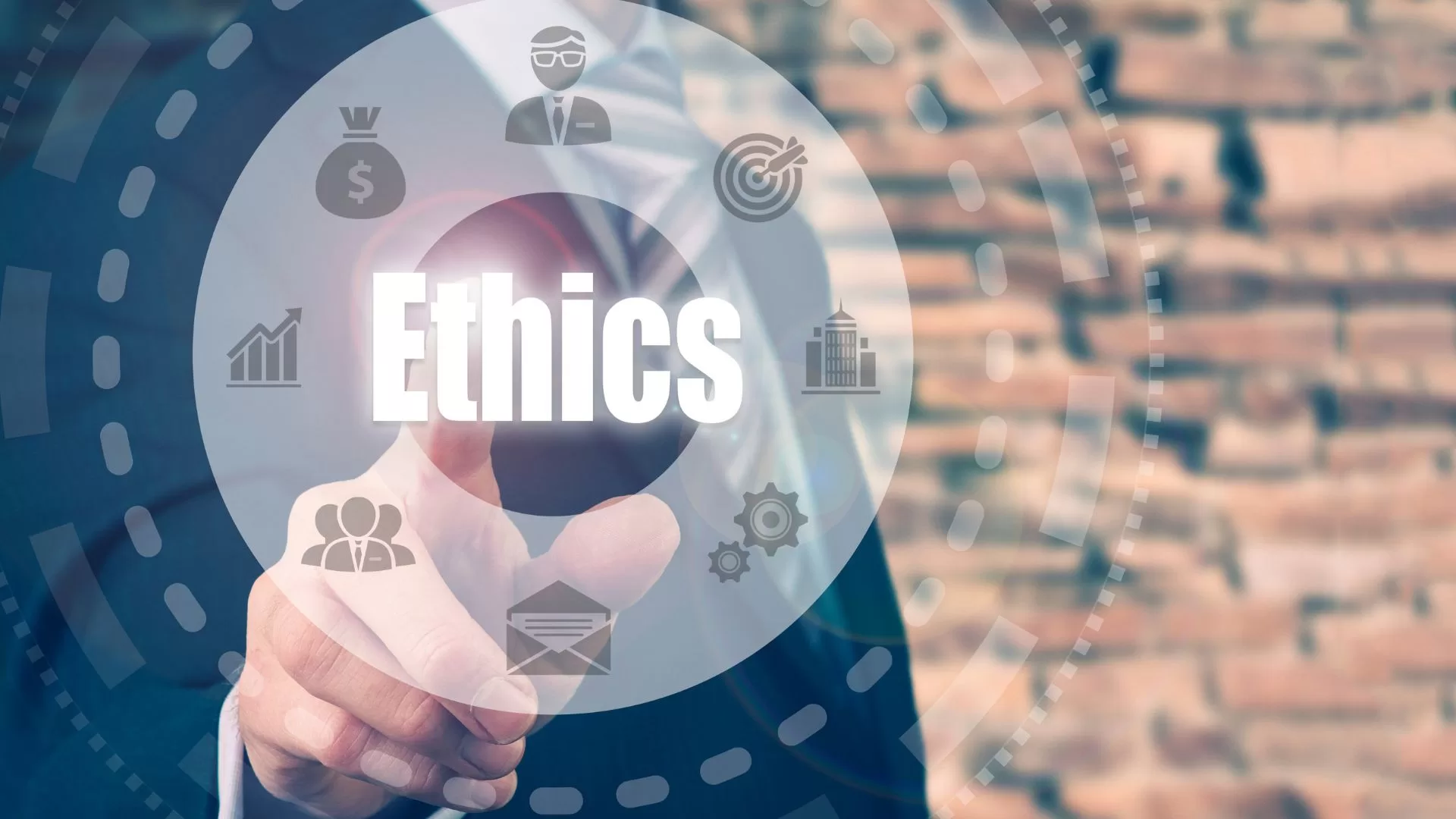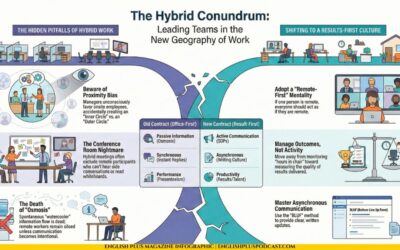- Ethical Business: Balancing Profit with Purpose
- Keywords:
- Key Takeaways:
- Real Life Application:
- Frequently Asked Questions (FAQs):
- How can small businesses afford to implement ethical practices while maintaining profitability?
- How do consumers validate the authenticity of a company’s ethical business claims?
- Can a business be entirely ethical in all its operations and practices?
- How do ethical business practices influence employee morale and retention?
- Does the implementation of ethical practices guarantee increased profitability?
- Myth Busters:
Ethical Business: Balancing Profit with Purpose
In the bustling world of commerce, where transactions dictate the rhythm and profit is often the melody, there emerges a harmonious tune that seamlessly blends the pursuit of economic gain with ethical grace. Picture a tapestry, woven with threads of fiscal aspirations, yet imbued with strokes of moral and social consideration. It is in this intricate artwork that the essence of conducting an ethical business—balancing profit with purpose—resides.
Consider the journey of The Body Shop, a brand synonymous with natural beauty products. Anita Roddick, the brand’s founder, didn’t just aim to create a successful enterprise; she was driven by a vision of a business that stood for something more. Each product wasn’t just a transaction but an echo of a deeper narrative—environmental consciousness, cruelty-free beauty, and community trade. The Body Shop didn’t just sell products; it sold a principle, an ethic.
The tale is similar for Patagonia, an outdoor apparel company that has etched its legacy not just in quality attire but in its unyielding commitment to environmental preservation. Yvon Chouinard, Patagonia’s founder, wasn’t merely an entrepreneur. He was a climber, a lover of the serene majesty of Earth’s landscapes. Every piece of apparel sold was a pledge—a promise to customers that while they’re buying a product, they’re also contributing to the conservation of the natural world. Profits were not just financial gains but investments in a planet they cherished.
These aren’t mere business strategies, they’re symphonies of ethical convictions harmonizing with entrepreneurial pursuits. The ledger isn’t just a record of financial transactions but a narrative of lives touched, environments preserved, and communities uplifted. It’s a dance between profit and purpose, where the music is sweetest when neither takes a dominating lead.
Ben & Jerry’s echoes this sentiment. Every scoop of ice cream is a taste of economic success, yet behind the flavors and textures is a commitment to fair trade, animal welfare, and climate justice. The sweetness isn’t just in the taste but in the knowledge that indulgence is contributing to a world where ethical and economic aspirations are not mutually exclusive.
Every organization that embarks on this journey of weaving profit with purpose writes its own unique score. Yet, there’s a common rhythm—a melody of ethical considerations that doesn’t drown the tune of economic aspirations but enriches it.
It’s a balance that extends beyond corporate walls, influencing supply chains, consumer behavior, and regulatory landscapes. Every product sourced ethically is a vote for humane labor practices. Every service that considers the environment is a pledge for a greener Earth. Every innovation that carries the echo of social welfare is a testimony that in the intricate dance of business, ethics and profits are not just partners but soulmates.
Yet, this symphony isn’t without its challenges. Ethical considerations often present complex puzzles. Balancing fair wages, environmental considerations, and economic gains is akin to a maestro managing a grand orchestra—every instrument, every note, every pause critical, demanding finesse, consideration, and mastery.
For every Patagonia that pledges a percentage of its sales to environmental preservation, there are questions about scaling, profitability, and competitive edges. For every Ben & Jerry’s advocating for social justice, there are complexities tied to supply chains, pricing, and market dynamics.
Yet, it is within these challenges that the essence of an ethical business is crystallized. It’s not a journey devoid of obstacles but a narrative enriched by them. Every challenge is an opportunity to innovate, to redefine norms, and to echo to the world that profit, when kissed by the gentle touch of purpose, isn’t just increased but is ennobled, elevated.
In the final analysis, as the curtain falls and the symphony of business reaches its crescendo, companies like The Body Shop, Patagonia, and Ben & Jerry’s stand not just as profitable enterprises but as legacies. They are testimonies that in the intricate dance between economic and ethical aspirations, the music is richest, the applause loudest, and the encore most fervent when profit is balanced with purpose.
The echo of their tune, resounding through the halls of commerce, whispers a profound truth: that businesses, when conducted as a harmonious blend of economic and ethical aspirations, don’t just touch bottom lines. They touch lives, nurture environments, and weave tapestries that hang not just in corporate halls but in the annals of human and planetary well-being.
As the audience – customers, entrepreneurs, and communities – we are not just witnesses to this performance. We are participants, co-composers of a symphony where our choices, patronage, and endorsements are the notes that dictate the rhythm. In this grand orchestra of commerce, where profit meets purpose, every note, pause, and crescendo is not just heard but is felt, echoing the profound narrative of a world where business isn’t just an economic endeavor but an ethical pilgrimage.
Keywords:
- Ethical Business Practices: These refer to the incorporation of moral and social responsibilities in business operations, ensuring a balance between profit-making and contributing positively to society and the environment.
- Profit with Purpose: This phrase implies generating financial gains while simultaneously achieving positive social and environmental outcomes.
- Environmental Consciousness: A commitment to minimizing negative impacts on the environment, often integrated into business operations and product offerings.
- Community Trade: A practice that involves sourcing goods and services in a manner that benefits and uplifts communities, often focusing on fair prices and ethical treatment.
- Fair Trade: A social movement aiming at helping producers in developing countries achieve better trading conditions and promote sustainability.
- Climate Justice: Addressing the inequalities related to climate change impacts and the implementation of policies that are both environmentally friendly and socially equitable.
- Supply Chains: The sequence of processes involved in the production and distribution of a commodity, crucial in implementing ethical business practices.
- Social Welfare: The well-being of communities and society at large, a key consideration for businesses focusing on ethical practices.
- Corporate Walls: A metaphorical term that refers to the boundaries of a company, including its internal practices and external impacts.
- Social Responsibility: The obligation of a business to contribute to the welfare of society beyond its primary objective of earning profits.
Key Takeaways:
- Ethical businesses focus on blending economic gains with moral and social values.
- Iconic brands like The Body Shop, Patagonia, and Ben & Jerry’s are examples of companies that have successfully combined profit with purpose.
- The balance between ethical considerations and profit-making enhances brand reputation and customer loyalty.
- Ethical business practices influence supply chains, consumer behavior, and regulatory landscapes.
- Challenges in implementing ethical practices often lead to innovation and the redefinition of business norms.
Real Life Application:
Example: A startup coffee brand aiming to implement ethical business practices.
Action Points:
- Source Ethically – Collaborate with coffee bean suppliers who are committed to fair trade and sustainable farming practices.
- Transparent Marketing – Communicate the brand’s ethical practices clearly to customers, sharing the story of how products are sourced and produced.
- Community Engagement – Invest in the communities where the coffee is sourced, supporting local development projects.
- Sustainability – Implement eco-friendly packaging and operations to minimize the environmental footprint.
Frequently Asked Questions (FAQs):
How can small businesses afford to implement ethical practices while maintaining profitability?
Small businesses can start with incremental changes, such as local community engagement or choosing eco-friendly suppliers, which not only are ethical but can enhance brand value and customer loyalty.
How do consumers validate the authenticity of a company’s ethical business claims?
Consumers can look for certifications like Fair Trade, B Corp, or look into the company’s corporate social responsibility reports and reviews to assess their ethical standing.
Can a business be entirely ethical in all its operations and practices?
Complete ethical purity is challenging, but businesses can continuously strive to improve and enhance their ethical practices in all areas, making it a journey of ongoing commitment.
How do ethical business practices influence employee morale and retention?
Ethical practices often result in a positive workplace culture, leading to increased employee satisfaction, morale, and retention as workers feel aligned with the company’s values.
Does the implementation of ethical practices guarantee increased profitability?
While not a guarantee, ethical practices often lead to enhanced brand reputation, customer loyalty, and stakeholder trust, which can positively influence profitability.
Myth Busters:
Myth: Ethical Business Practices Always Lead to Reduced Profits.
Reality: Many businesses, like Patagonia and Ben & Jerry’s, have proven that ethical practices can coexist with profitability, often enhancing brand reputation and customer loyalty.
Myth: Small Businesses Can’t Afford to be Ethical.
Reality: Even small businesses can integrate ethical practices through community engagement, sustainable operations, and ethical sourcing, often leading to increased brand value.
Myth: Consumers Don’t Care About Ethics, Only Price.
Reality: A growing number of consumers are prioritizing ethically produced goods and are willing to pay a premium for products that align with their values.
Myth: Ethical Practices are a Marketing Gimmick.
Reality: While some companies may misuse the term, many are genuinely committed to ethical practices, contributing positively to social and environmental issues.
Myth: Only Environmental and Social Ethics Matter in Business.
Reality: Ethical business practices also encompass corporate governance, employee rights, customer service, and community engagement, painting a holistic picture of corporate ethics.










0 Comments